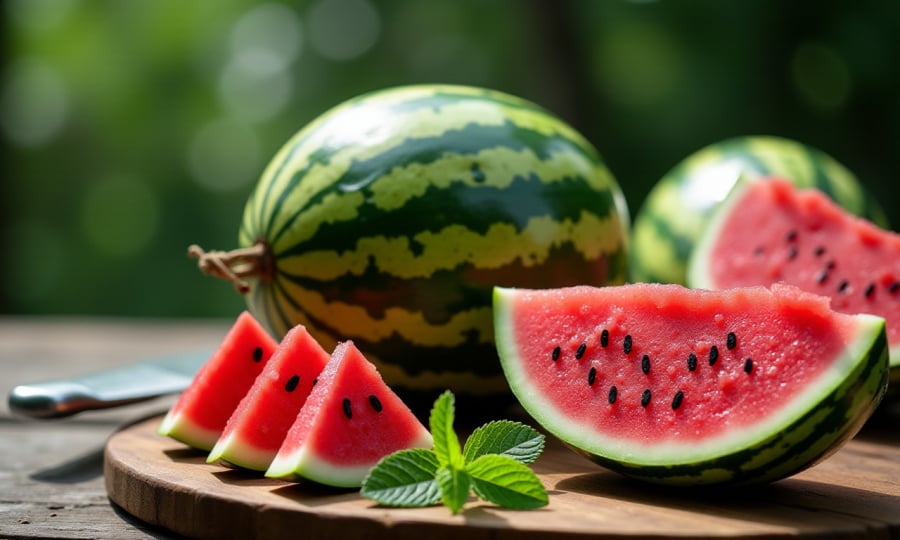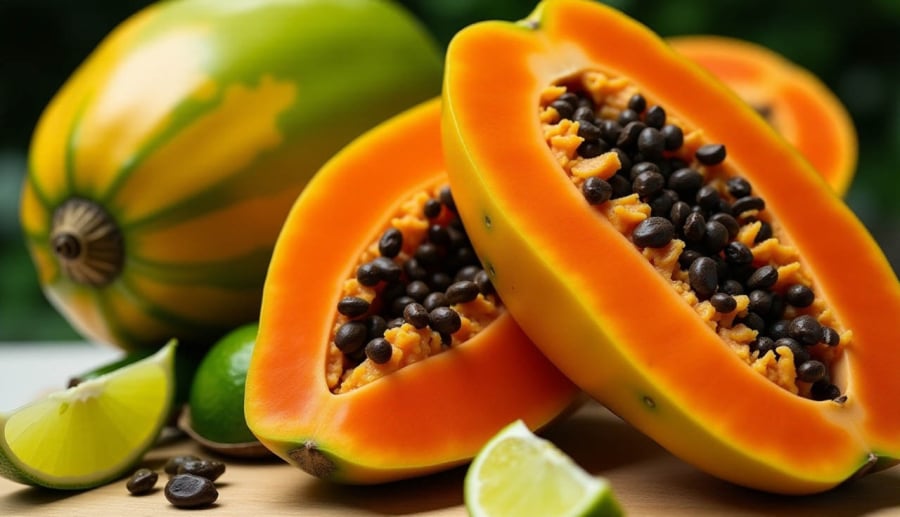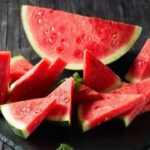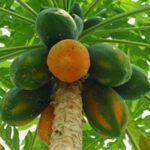Can eating fruits reduce fatty liver? Summer brings an abundance of refreshing fruits that are low in sugar but packed with fiber and antioxidants, all of which positively impact liver health. Watermelon, blueberries, grapefruit, and papaya are excellent natural food choices, offering a wealth of nutrients that actively support individuals with fatty liver.
Fatty liver disease, particularly non-alcoholic fatty liver disease (NAFLD), currently affects around a quarter of the global population, according to the World Health Organization (WHO). With limited treatment options available, dietary modifications, especially the inclusion of appropriate fruits, are considered crucial in managing and slowing the progression of the disease.
1. Watermelon – Soothing to the Liver, Effective in Reducing Inflammation
Watermelon is composed of over 90% water, helping the body cool down and supporting the liver in detoxifying. This fruit is also rich in lycopene, a powerful antioxidant that can reduce liver inflammation.
A study published in Hepatology International revealed that individuals who regularly consumed watermelon or lycopene-rich foods had approximately an 18% lower risk of developing fatty liver disease compared to those with lower intakes.
Research from the Journal of Nutritional Biochemistry (2014) indicated that lycopene inhibits lipid oxidation in the liver, playing a significant role in slowing the development of fatty liver. According to nutrition expert Josh Axe, watermelon is a fruit that not only quenches thirst but also improves liver health due to its anti-inflammatory and antioxidant properties. Hence, watermelon is considered a fruit that helps reduce fatty liver.

Watermelon helps reduce fatty liver due to its lycopene content, which possesses strong antioxidant and anti-inflammatory properties.
2. Blueberries – Protecting Liver Cells with Their High Antioxidant Capacity
Blueberries are an excellent source of anthocyanins, compounds with potent antioxidant capabilities that help prevent liver cell damage caused by fat accumulation.
A study from the National Institutes of Health (NIH) in the United States showed that blueberry extract supplementation significantly reduced liver fat and improved liver enzyme markers. Professor Frank Hu of Harvard University emphasized that berries, including blueberries, are rich in polyphenols, which have been shown to reduce liver fat accumulation.
3. Grapefruit – Enhancing Fat Metabolism with Naringenin, Reducing Fatty Liver
Not only does grapefruit support weight control, but it also positively influences the liver due to the presence of naringenin, a compound that activates enzymes involved in fatty acid oxidation.
According to a study published in the World Journal of Gastroenterology (2013), naringenin improves insulin sensitivity and reduces liver inflammation. Dr. Michael Greger, author of ‘How Not to Die’, states: “Citrus fruits like grapefruit help the body detoxify and improve fat metabolism, supporting more efficient liver function.”
4. Papaya – Reducing Oxidative Stress and Supporting Fat Digestion
Papaya contains the enzyme papain, which aids digestion, along with beta-carotene, an antioxidant that can protect liver cells from damage.
An Indian study published in the Asian Pacific Journal of Tropical Biomedicine demonstrated that papaya extract could improve liver function in animals with fatty liver disease due to its ability to reduce oxidative stress.

Papaya reduces oxidative stress, supports fat digestion, and contributes to improved liver function.
5. Notes on Using Fruits to Reduce Fatty Liver:
- Avoid consuming excessive amounts of high-sugar fruits such as durian, lychee, longan, and ripe mangoes, as the high fructose content can contribute to increased liver fat accumulation.
- Prioritize eating whole fresh fruits rather than juicing or adding sugar.
- Combine fruit intake with a low ‘bad’ carbohydrate diet, include plenty of green vegetables, and maintain regular physical activity to support overall health.
Incorporating nutrient-rich fruits like watermelon, blueberries, grapefruit, and papaya into your daily diet not only improves fatty liver conditions but also enhances overall health. When coupled with a healthy lifestyle, this natural, simple approach becomes an effective long-term strategy to protect and restore liver function.



































